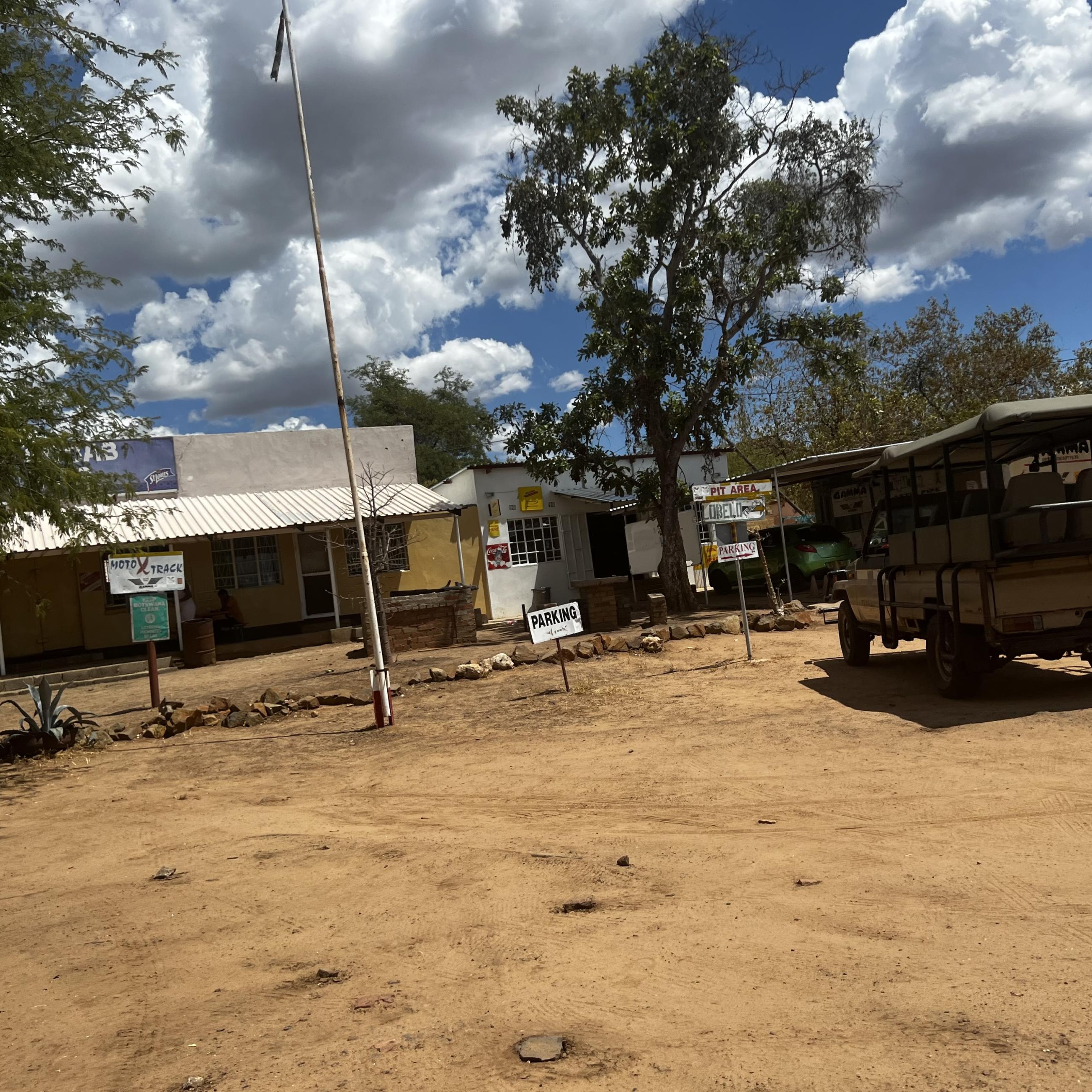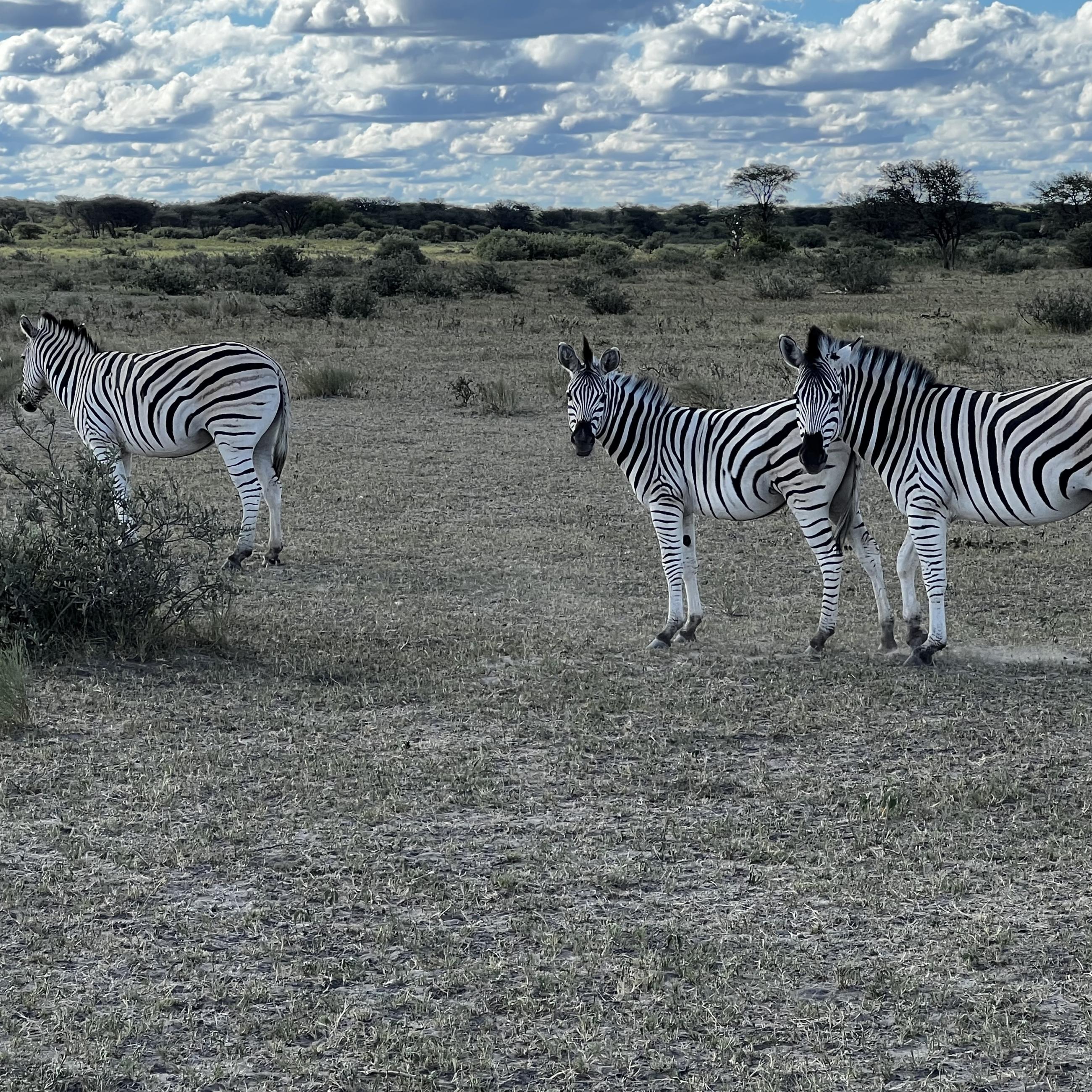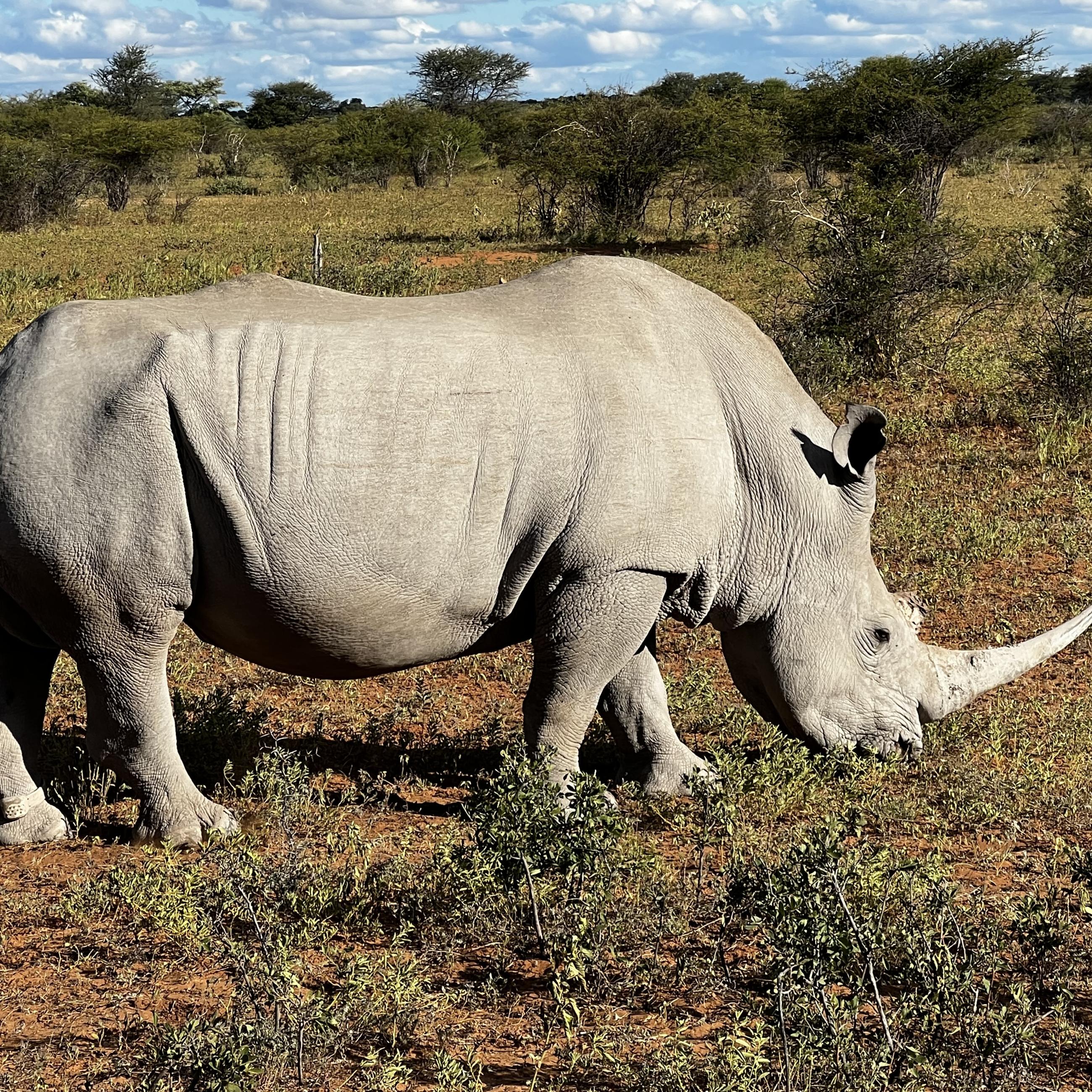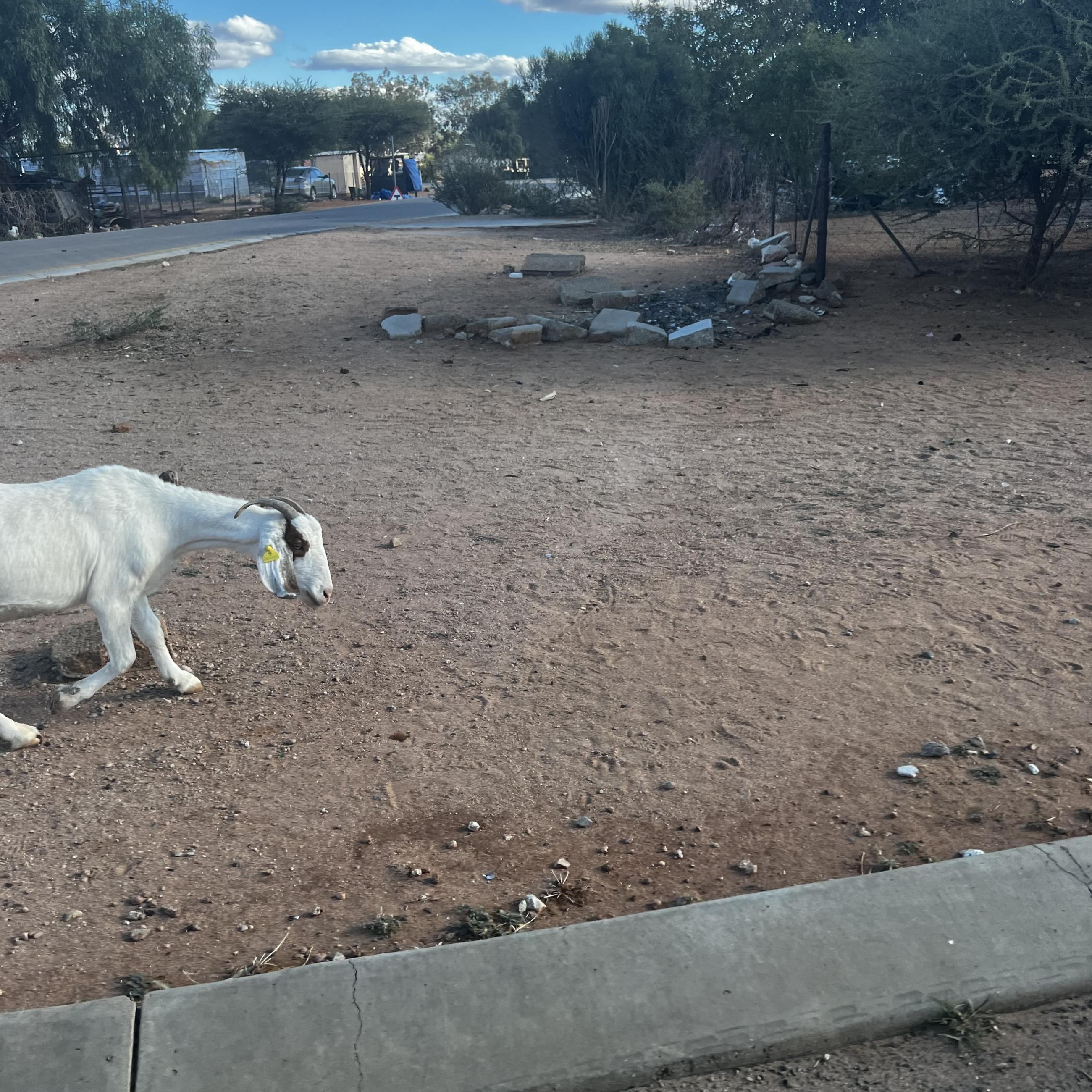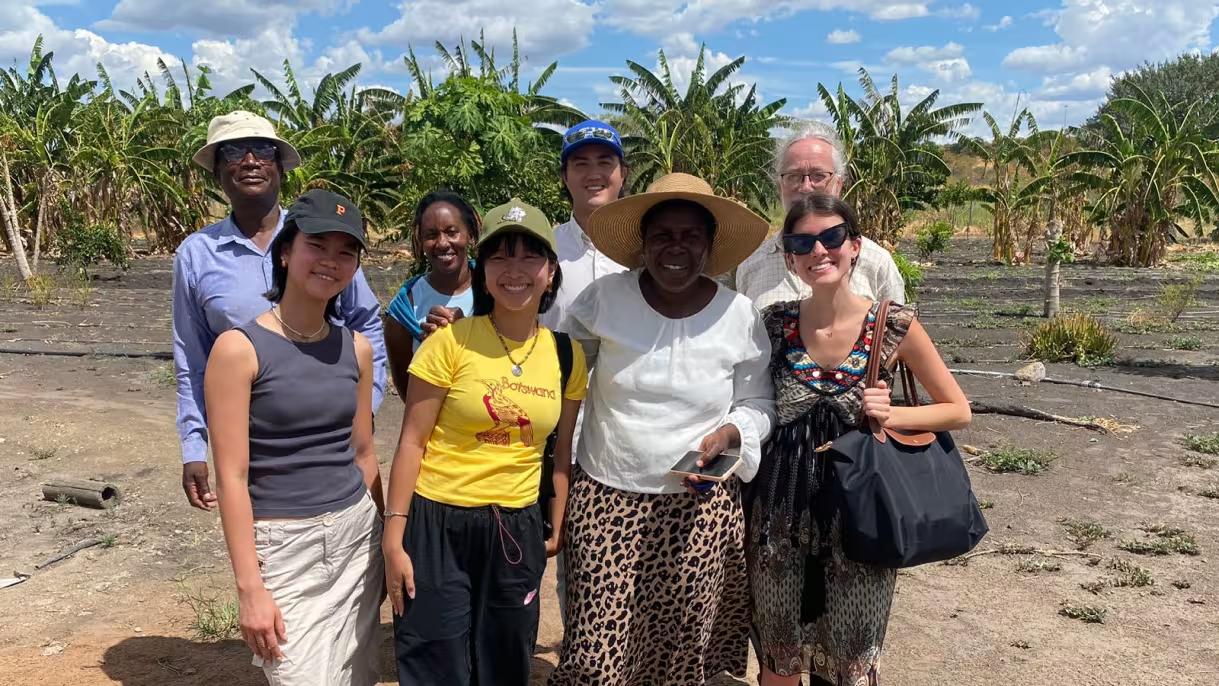

Fieldwork in Botswana Shapes Students' Global Policy Perspectives
Four SPIA students engaged with local citizens and politicians grappling with significant challenges
During a trip to Botswana last spring, a group of juniors from the Princeton School of Public and International Affairs studying social protection policies in Southern Africa came face to face with a frustrated local farmer named Mma Mogaetsho. Although she had cultivated her family’s fields for decades, Mogaetsho had recently struggled with local wildlife — primarily elephants — trampling her crops, which threatened not only her livelihood but also her family’s means of subsistence.
The night before the meeting, those same havoc-wreaking elephants had wowed the students while refreshing themselves at a nearby watering hole. The experience gave them an intimate understanding of the tension between the government’s efforts to strengthen the economy by protecting animals that draw tourists and the effects of those policies on local people trying to coexist with the animals.
“The utter joy I felt seeing the elephants was juxtaposed by learning firsthand what it really means to live with them,” said Cassie Eng, one of the four students on the trip.
The weeklong fieldwork in Botswana was part of SPIA’s Policy Task Force, a requirement for all of the School's undergraduates that charges them to actively engage with government officials and others with boots-on-the-ground experience and expertise while addressing questions of public policy.
While a separate cohort spent the spring semester at the University of Cambridge, Eng and her three classmates, Alexa Marsh, Evelyn Howe, and Joshua Worth, studied under Dr. Jeremy Seekings, a professor of political studies and sociology at the University of Cape Town in South Africa. His scholarship centers on inequality, social protection, and poverty reduction. To help make those issues more tangible, Seekings organized meetings with academics, local politicians, and political organizations during the trip north to Botswana.
“One of the school’s priorities is tapping into our global networks and relationships by sending students into communities around the world to learn about local needs directly from individuals with on-the-ground regional expertise via their own lived experience,” said Dr. Paul Lipton, SPIA’s senior associate dean for academic administration.
Eng was drawn to Southern Africa to gain a broader international perspective on public policy perhaps accessible only through studying abroad. A dual citizen of the United States and the Philippines, she has witnessed extreme poverty in Manila, where her grandmother lives, which informs her interest in how public policy and other structural forces affect inequality.
“I wanted to engage in the dialogue happening with the Global South while living there. It was a drastically different experience than I could have gotten at Princeton or even Cambridge.”Cassie Eng
In addition to its struggle balancing tourism with agriculture, Botswana faces other significant challenges, including widespread unemployment and a prolonged drought that has caused acute food insecurity throughout the region. The students were tasked with writing a brief outlining recommendations to promote social protection programs that address these and other issues, with a specific focus on implementing them in a place where the government tends to resist social policy proposals from foreign actors.
Encountering such real-world challenges firsthand helped Eng grasp the critical role of engaging with communities directly affected by these issues and underscored the importance of incorporating local voices through fieldwork to understand how policy impacts individuals.
“Who knows a place better than the people there?” said Eng, whose other research interests include democratic fragility. “I’ll be asking myself that question no matter where I am or what region I’m working in because expertise comes from the people who have lived in these specific systems.”
Reflecting on her time in Botswana, she expressed a continued commitment to understanding and addressing global issues through encounters with local people facing real problems.
“People share their stories with you in the hopes that you help with creative solutions to their problems,” Eng said. “It makes you consider how to put those stories to use. I know I’m quite young still, but I’m keeping the stories we heard close to my heart because I'm hoping I can pay it forward one day.”



